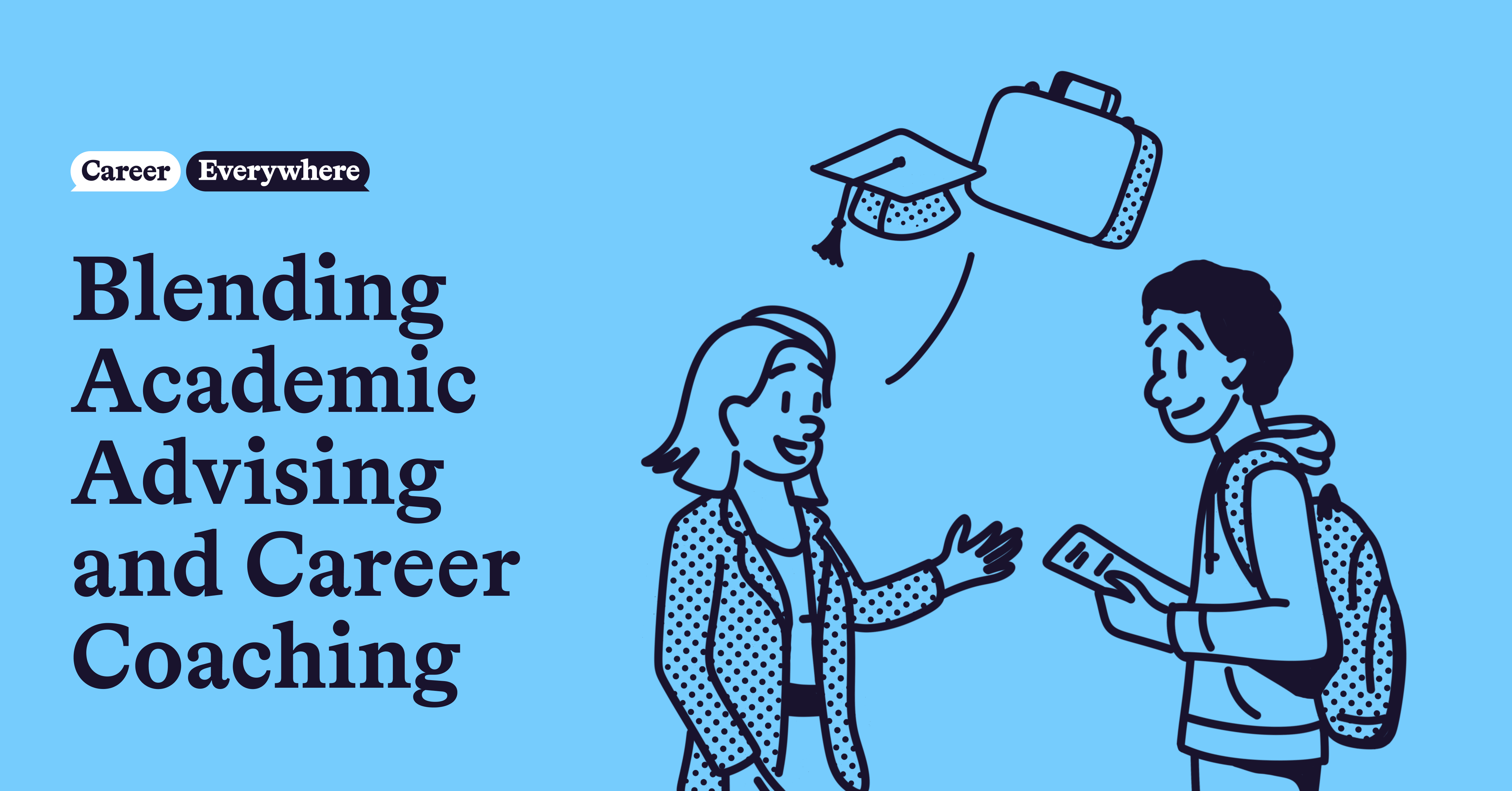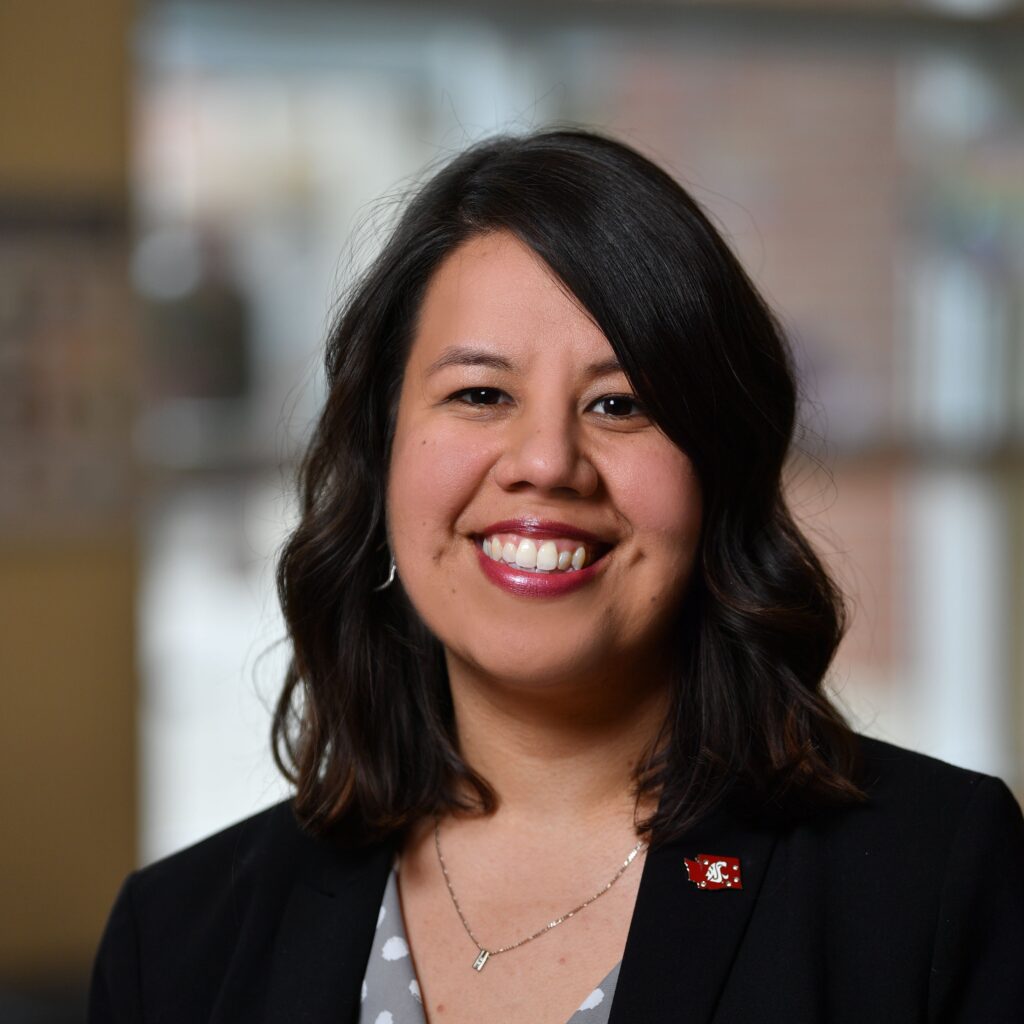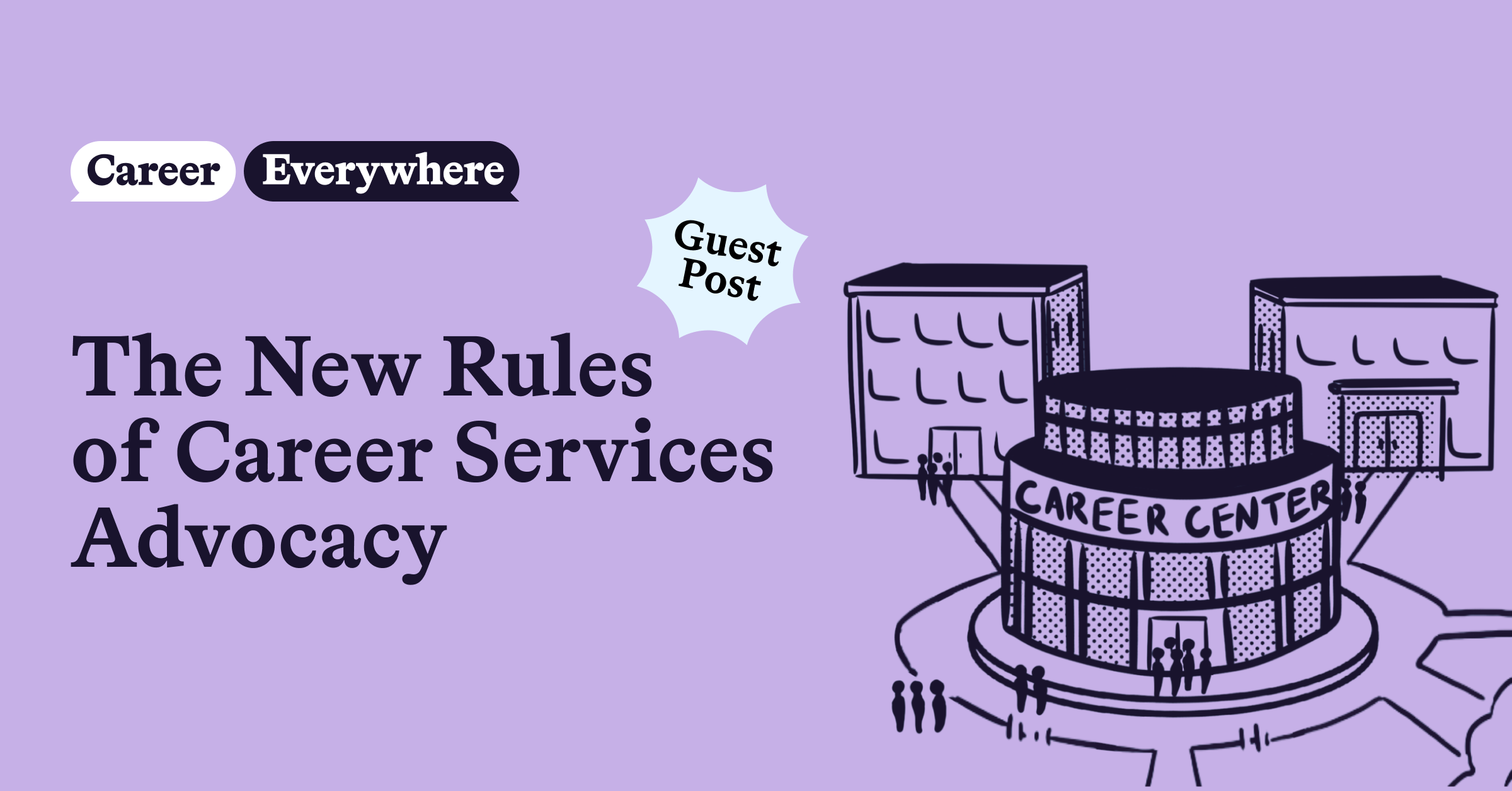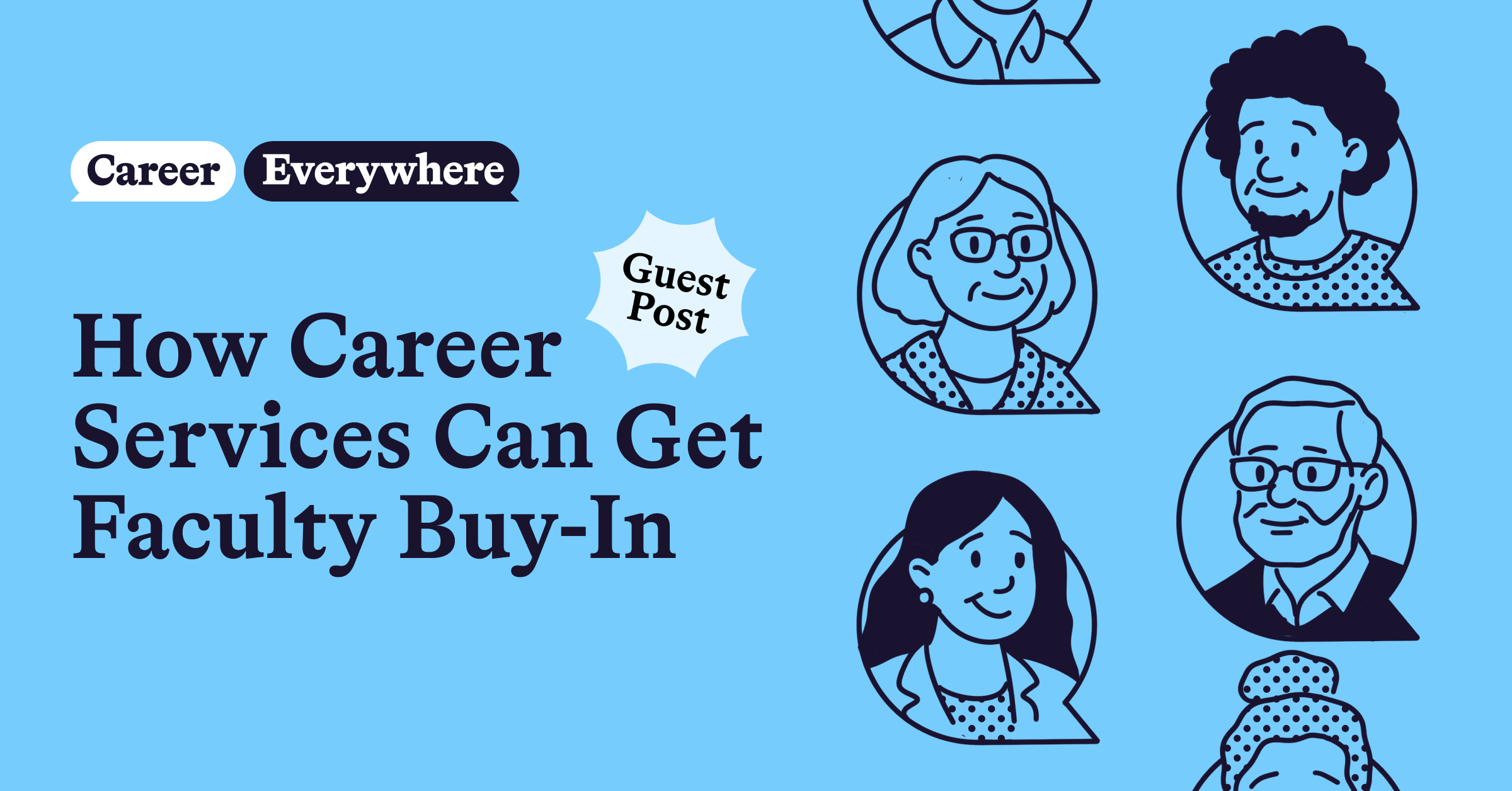
For many students, higher education (while certainly exciting) can also bring a lot of questions and uncertainty. What should they major in? What kind of career do they want after graduation? What sort of lifestyle do they want to pursue? And how does it all fit together?
And most importantly, how can they make their vision a reality?
While the career center might seem like the most obvious place to begin exploring answers to those questions, many students seek career advice elsewhere—from faculty, staff, families, friends, etc. That’s why it’s so important for other folks on (and off) campus to be equipped and empowered to have meaningful career conversations with students. (This is what we call Career Everywhere).
Knowing this, Washington State University created a one-stop shop for students that blends academic and career advising: the aptly named Academic Success and Career Center (ASCC).

WSU’s unique setup allows their career coaches to also serve as academic advisors for undecided students. This allows for intentional conversations and personalized guidance that spans interests and goals, enabling students to make the most informed career and academic decisions. Plus, the ASCC works closely with other academic advisors across campus to offer training, programming, and resources so those advisors can incorporate career into their sessions with students.
Amanda Morgan is the Associate Director of Career Services for the ASCC at WSU, dedicating over four-and-a-half years of her career to helping lead WSU’s career and employer relations team.
To learn more about how WSU blends career coaching and academic advising, we recently sat down with Morgan on the Career Everywhere podcast. In this article, we’ll cover the ins and outs of WSU’s combined center, the benefits of blending academic advising and career coaching, and Morgan’s advice for other career centers who want to follow suit.
Listen to Morgan’s episode of the Career Everywhere podcast here.
What are the benefits of blending academic advising and career coaching?
It’s no secret that most students pursue post-secondary degrees to improve their job prospects after college. And with the cost of higher education continuously increasing, that ROI conversation and helping students make the connections between their academics and career goals is more important than ever.
That’s why Morgan and her team blend academic advising and career coaching for undecided students within the ASCC and work so closely with other academic advisors across campus.
“Being able to think of those two things as integrated, and ensuring that our academic advising community has the tools to be confident in those conversations is so important,” Morgan said. “I’ve also found our advisors are really in tune with what’s happening within their college … and they often know a lot more than they give themselves credit for when it comes to career engagement and career readiness. And so being able to say, ‘You’ve got this. You have all the tools, you’ve already been having these conversations, let’s just be a little more intentional about it,’ is a win-win.”
While there are many benefits to blending academic advising and career coaching, here are a few of the key ones, according to Morgan:
- Being informed on college endeavors
- Being prepared to ensure stakeholder value
- Staying connected to students and families
- A more streamlined student journey
- Increased student retention
“We have the opportunity to engage students in a holistic way that’s fun and unique,” Morgan said. “It’s fun to see students progress from their first time working with us through moving into their college or department and then seeing them graduate.”
How can career centers blend academic advising and career coaching?
Career centers can effectively blend academic advising and career coaching by integrating the two roles into one singular support system (like WSU’s ASCC) and/or regularly collaborating with advisors across campus.
Here are a few ways WSU has blended academic advising and career coaching:
1. Blend career coaching and academic advising roles for undecided students
In WSU’s ASCC, career coaches also serve as academic advisors to undecided students, which ensures continuity in the support provided to students. This dual role allows advisors to assist students in both their academic planning and career development, making the advising process more holistic and personalized for each student.
This makes it more likely that undecided students will A) stay at the university, and B) land in a major and college that fits their career and life aspirations.
“Naturally, these two conversations go hand in hand, academic advising and career readiness. I was just looking at a NACE report, and I want to say that 50% of career centers see academic advising and career services as two different entities. And I can see why, depending on university structure. But here at Washington State University, we see those two conversations going hand in hand.”
Once an undecided student chooses a major, the ASCC career coach/advisor helps that student transition to an academic advisor in their new college or department.
2. Encourage students to take a career exploration course
Knowing that early intervention is critical, especially for undecided students, Morgan and her team at the ASCC engage with students at orientation and early in the fall semester. In those early interactions, they encourage undecided students (or any student) to take University 100, a one-credit, eight-week career exploration course designed to help students who are undecided in their major or would like to explore academic areas of interest and how they link to various career options.
University 100 is typically taught by ASCC career coaches/advisors and each course section includes cohorts of students who all have the same coach/advisor.
“It allows us to build a rapport with students and work with them as they’re navigating their future pathway. And it gives them a sense of community and normalizes not knowing what they’re going to do. So that’s a big part of it too, is just normalizing like, ‘Hey, it’s okay,’ and, ‘You’re still going to be successful,’” Morgan said.
University 100 includes self-assessments (using tools like Focus 2), an informational interview, learning how to use the career resources on the ASCC’s virtual career center (powered by uConnect), independent research on career clusters and majors, conversations about the realities of today’s workforce, and more.
3. Conduct regular career-focused trainings with academic advisors across campus
In addition to blending the roles of career coach and academic advisor within their center, the ASCC also conducts a series of trainings, called the Advisor Learning Program, with academic advisors across campus.
Developed by the executive director of university advising (who also happens to be the executive director of the ASCC), the program provides academic advisors outside of the ASCC with the tools and skills to have intentional conversations about career readiness and career development. Trainings include the employer relations team talking to advisors about what employers are looking for. Another session shows advisors how to use the labor market insights tool (powered by uConnect) on the ASCC’s virtual career center. (More on that in No. 5 below)
“Advisors are already having these conversations, so why not hit the ground running with them and make sure they have what they need to have conversations they feel good about, that they feel confident in having with students,” Morgan said. “Ultimately, the student’s going to win. The more people they interact with who can give them this information, the better.”
4. Share Handshake/career coaching notes with advisors
Morgan mentioned in her podcast episode that the ASCC is also working to import their Handshake notes into advising notes. That way, advisors can see if a student has previously engaged with a career coach in a career center. If they haven’t, advisors can encourage students to visit the career center. If they have, advisors can get context and continue the career conversation with that student.
“It allows us to really open up those doors of communication and break down that barrier between career services and academic advising,” Morgan said. “The more information we can give our advising community, the better equipped they are to have more intentional conversations with their students.”
5. Give academic advisors access to career tools like labor market insights
As mentioned above, one tool the ASCC career coaches/advisors make sure their academic advising peers across campus have access to is the labor market insights (LMI) tool on their virtual career center (powered by uConnect).
WSU utilizes this tool to help students make informed career decisions, allowing them to explore different job scenarios, including job titles and locations and in-demand skills, in addition to helping them understand how salaries and costs of living vary by region. This real-time data enables students to make more informed choices about their career paths, particularly when they face external pressure from family and friends. The tool also helps students assess the education levels required for their desired careers.

For example, students aspiring to become X-ray technicians can see that a four-year degree may not be necessary. This insight prompts students to reconsider their educational goals and explore broader opportunities within fields like health sciences. Morgan notes that these honest conversations often lead students to redefine their purpose at WSU, rather than leaving for technical or community colleges. Overall, the tool fosters transparency and empowers students to make better decisions.
“If you haven’t already started conversations with your academic advising community, that is 100% the first step,” Morgan said. “And I think you would be pleasantly surprised at how many advisors want to have these conversations and are hungry for this information and data.”
Conclusion
At the end of the day, academic advisors and career services professionals both want students to make the most of their time in higher education and make informed decisions about their futures.
That’s why it’s so important for both departments to work together! Whether that’s through a combined career/academic success center like WSU’s ASCC, collaborative trainings between career services and advisors, shared notes and career tools, or other strategies, breaking down the barriers between academic advising and career coaching is always a win for students.
To learn more from Morgan about how to blend academic advising and career coaching, check out her episode of the Career Everywhere podcast.


